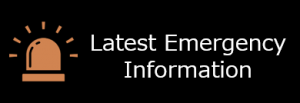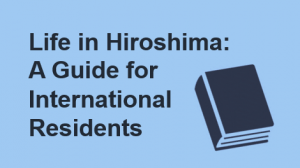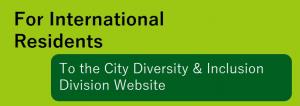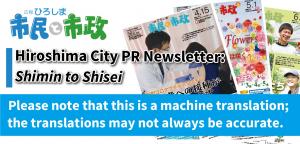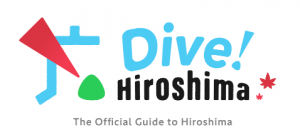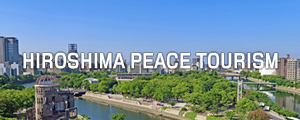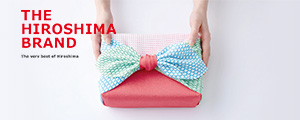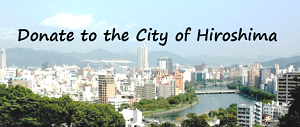本文
COVID-19: Information for Close Contacts
With the rapid spread of the Omicron variant, our health centers are currently facing considerable strain. In Hiroshima City, the contents of the proactive epidemiological surveys conducted by health centers are now limited to the most important items only.
As to whether or not you are categorized as a “close contact,” we are currently asking those who test positive for COVID-19 to contact their close contacts.
Quarantine period for close contacts
The quarantine period for close contacts will be shortened while the Omicron variant is the main variant. Furthermore, if you fulfil certain criteria, the period may be shortened even further.
1) If someone you live with contracts COVID-19
Date quarantine begins
Day 0 shall be the day the patient presented COVID-19 symptoms (if they are asymptomatic, the day they had a sample taken to be tested) or the day that infection prevention measures began in your home, whichever date is later.
However, if someone that you live with other than the COVID-19 patient contracts COVID-19, you will have to once again begin at Day 0 (being the day that patient no. 2 presented symptoms).
Quarantine period
7 days (there will be no restrictions on activities beginning on day 8)
If you take a qualitative antigen test (see Note 1) on days 4 and 5 and test negative on both days, all restrictions on activities will be lifted on day 5 regardless of whether or not you are an essential worker.
Other notes
In all situations (including those whose restrictions are lifted on day 5), keep track of your health (i.e., take your temperature, etc) for a period of seven days.
Avoid contact with high-risk individuals (see Note 2) and unnecessary visits (see Note 3) to high-risk facilities (see Note 4), as well as going to high-risk places and dining out. Be sure to take proper infection prevention measures, such as wearing a mask.
Please note that if you work at medical facilities, educational facilities (nursery schools, kindergartens, elementary schools, etc), or care facilities for the disabled or elderly, you may be able to work even if you are a close contact if you fulfil certain criteria and caveats.
Please see 3) Those who work at medical facilities, educational facilties (nursery schools, kindergartens, elementary schools, etc), or care facilities for the disabled or elderly for more information.
- Note 1: Qualitative antigen test kits are to be purchased at your own expense. Please only use tests approved by the Pharmaceutical Affairs and Food Sanitation Council.
- Note 2: “High-risk individuals” refers to those at high risk of developing severe COVID-19, such as the elderly and those with underlying conditions.
- Note 3: “Unnecessary visits” exclude visits for medical treatment purposes.
- Note 4: “High-risk facilities” refers to facilities where many high-risk individuals live or visit, such as care facilities for the disabled or elderly, and medical facilities.
2) If someone you don’t live with contracts COVID-19
Date quarantine begins
Day 0 shall be the last day you came into contact with the patient.
Quarantine period
7 days (there will be no restrictions on activities beginning on day 8)
If you take a qualitative antigen test (see Note 1) on days 4 and 5 and test negative on both days, all restrictions on activities will be lifted on day 5 regardless of whether or not you are an essential worker.
Other notes
In all situations (including those whose restrictions are lifted on day 5), keep track of your health (i.e., take your temperature, etc) for a period of seven days.
Avoid contact with high-risk individuals (see Note 2) and unnecessary visits (see Note 3) to high-risk facilities (see Note 4), as well as going to high-risk places and dining out. Be sure to take proper infection prevention measures, such as wearing a mask.
Please note that if you work at medical facilities, educational facilities (nursery schools, kindergartens, elementary schools, etc), or care facilities for the disabled or elderly, you may be able to work even if you are a close contact if you fulfil certain criteria and caveats.
Please see 3) Those who work at medical facilities, educational facilities (nursery schools, kindergartens, elementary schools, etc), or care facilities for the disabled or elderly for more information.
- Note 1: Qualitative antigen tests are to be purchased at your own expense. Please only use tests approved by the Pharmaceutical Affairs and Food Sanitation Council.
- Note 2: “High-risk individuals” refers to those at high risk of developing severe COVID-19, such as the elderly and those with underlying conditions.
- Note 3: “Unnecessary visits” exclude visits for medical treatment purposes.
- Note 4: “High-risk facilities” refers to facilities where many high-risk individuals live or visit, such as care facilities for the disabled or elderly, and medical facilities.
3) Those who work at medical facilities, educational facilities (nursery schools, kindergartens, elementary schools, etc), or care facilities for the disabled or elderly
If you work at medical facilities, educational facilities (nursery schools, kindergartens, elementary schools, etc), or care facilities for the disabled or elderly, you may be able to work even if you are a close contact if you fulfil certain criteria and caveats. For more details, please read the information from the Ministry of Health, Labor, and Welfare below (Japanese):
- Quarantine for close contacts who work at medical facilities
- Quarantine for close contacts who work at nursery schools/kindergartens/elementary schools (etc)
- Quarantine for close contacts who work at care facilities for the disabled
- Quarantine for close contacts who work at care facilities for the elderly
Quarantine period
The quarantine period for close contacts of someone with the Omicron variant is 5 days from their last exposure to the patient.
In addition to testing every day before work using a PCR or quantitative antigen test (a qualitative antigen test will also suffice if the previous two are unavailable), testing using a qualitative antigen test must also be performed on days 4 and 5. If you test negative on both days 4 and 5, all restrictions on activities will be lifted on day 5 regardless of whether or not you are an essential worker.
Other notes
Be acutely aware that even if you have received your COVID-19 vaccination, it does not completely prevent the risk of infection. The above-mentioned exceptions are only to be used for employees who cannot be easily replaced by others.
Employees should avoid unnecessary outings other than work as much as possible and also avoid using public transport to commute as much as possible. Keep track of your health (i.e., take your temperature, etc) for a period of seven days since your last exposure to the patient. Avoid going to high-risk places and dining out. Be sure to take proper infection prevention measures, such as wearing a mask.
Close contacts who test positive for COVID-19
If you test positive using a qualitative antigen test, contact the Hiroshima City COVID-19 Call Center and go to your local medical facility.
Other information
The Hiroshima City COVID-19 Call Center
The City of Hiroshima has established a COVID-19 consultation hotline to help answer any questions or concerns you may have.
- Tel: 082-241-4566
- Hours: Open 7 days a week, 24 hours a day
If you are confident in your Japanese abilities, please call the hotline directly. For those who are not confident in their Japanese abilities and would like an interpreter, please inquire at the consultation desks listed below:
Hiroshima City Consultation Service for International Residents
- Tel: 082-241-5010
- Fax: 082-242-7452
- Email: soudan@pcf.city.hiroshima.jp
- Hours: Monday to Friday from 9:00 am to 4:00 pm (excluding national holidays and 8/6)
- Languages: English, Chinese, Spanish, Portuguese, Vietnamese
Hiroshima Multilingual Living Support for Foreigners
- Tel: 0120-783-806 (toll-free)
- Hours: Monday to Friday from 8:30 am to 7:00 pm (excluding national holidays), Saturdays from 9:30 am to 6:00 pm (note: lines will be closed from 12:00-1:00 pm)
- Languages: English, Chinese, Spanish, Portuguese, Vietnamese, Korean, Tagalog, Indonesian, Thai, Nepalese


